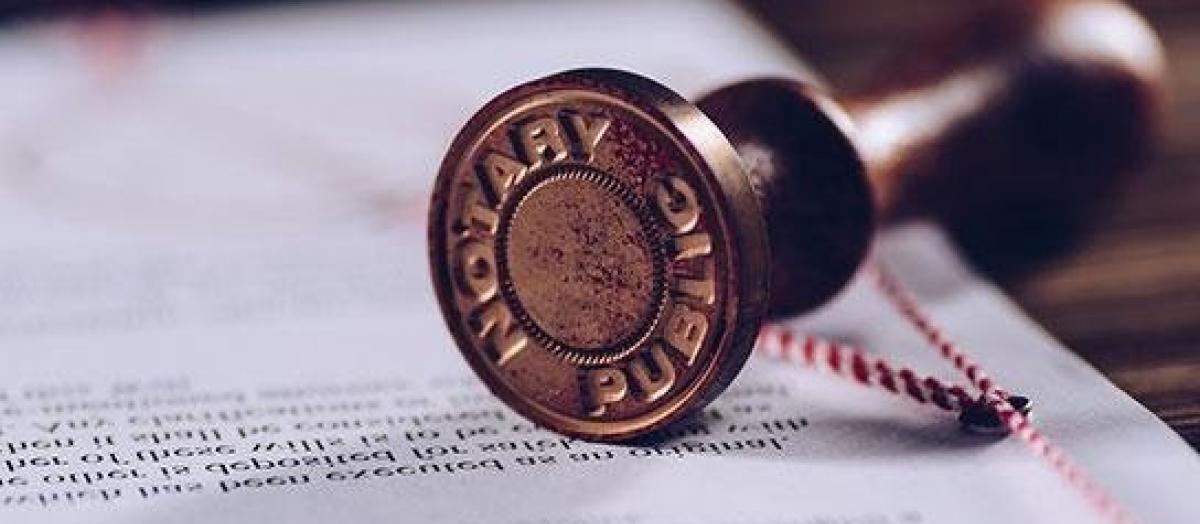Apostille Process Explained: Streamlining International File Verification
Apostille Process Explained: Streamlining International File Verification
Blog Article
Debunking Notarial Work: Streamlining the Duty and Significance of Notaries
Their role, typically shrouded in enigma for lots of, brings significant weight in ensuring the validity and honesty of critical papers. By deciphering the complexities bordering notarial methods and dropping light on the importance of their acts, a more clear understanding arises of the important role notaries play in upholding the material of legal and legal arrangements.
The Background of Notarial Job
The history of notarial job days back to ancient worlds, where scribes played a critical role in taping important info and confirming files. This led to the advancement of notaries, individuals designated by the state to act as objective witnesses in lawful matters.
Throughout the Center Ages, notaries obtained prominence in Europe, with their functions expanding to include preparing lawful documents, certifying signatures, and protecting documents. The surge of international profession further highlighted the relevance of notarial job in verifying contracts and agreements across boundaries.
In the modern era, notaries remain to play a vital role in legal and company deals by confirming identities, verifying the authenticity of files, and stopping scams. Their duty in licensing the legitimacy of contracts includes a layer of safety and depend the ever-evolving landscape of business and legislation.

Tasks and Obligations of Notaries
Notaries play an essential function in validating the authenticity of documents and the identification of signatures. One of their primary obligations is to witness the finalizing of essential records, such as acts, agreements, and wills, to guarantee that all celebrations are entering right into contracts knowingly and voluntarily.
Moreover, notaries are charged with administering affirmations and vows, which are vital in legal procedures and the implementation of testimonies. They accredit duplicates of original papers, offering guarantee to institutions that the duplicates are real reproductions of the originals. Notaries have to maintain precise records of all transactions they manage to make certain transparency and responsibility. Generally, the tasks and duties of notaries are vital in protecting the stability and legality of various files and deals.
Notarial Certificates and Signatures
Exemplifying precise attention to information, notarial certificates and trademarks offer as crucial parts in confirming the credibility of lawful records. Notarial certifications typically contain important information such as the day of registration, the names of the notaries, a description of the document, and the notary's main seal. These certificates give a clear document of the notarial act, guaranteeing that the document can be conveniently identified and mapped back to the notary who supervised the procedure.
Signatures play a pivotal function in notarial job, as they symbolize the agreement and authorization of the celebrations entailed. Notaries very carefully witness the signing of papers to verify the identification of the signatories and verify that he said they are authorizing of their own free choice. By attaching their main seal and signature to the paper, notaries certify that the needed procedures have been adhered to and that the paper is valid and enforceable.
Fundamentally, notarial certificates and signatures are the trademark of credibility in legal deals, giving assurance to all celebrations entailed that the papers are legit and binding.
Significance of Notarial Acts

Notarization Process Discussed
The registration procedure normally starts with the private presenting the record to a notary public. As soon as the identity is confirmed, the notary ensures that the specific signing the document does so voluntarily and without any type of coercion.

Final Thought

Notarial certificates normally contain important info such as the day of registration, the names of the signatories, a description of the file, and the notary's main seal. These certificates offer a clear document of the notarial act, guaranteeing that the file can be easily determined and mapped back to the notary that looked after the procedure.
By fastening their official seal and signature to the document, notaries certify that the required procedures have been complied with and that the paper is enforceable and legitimate.
By validating the identity of the notaries, verifying their desire to get in into the contract, and accrediting the date and location of the signing, notaries play an important role in supporting the validity of legal documents.After the record is authorized, the notary see here now will certainly attach their official seal or stamp onto the document.
Report this page